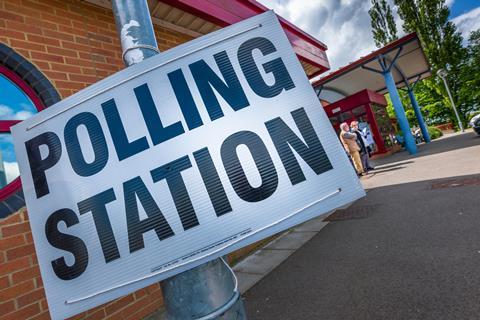A new survey shows an alarming shift toward authoritarianism among young Brits. Democracy isn’t perfect, says Tim Farron MP, but it’s far better than the alternative, and there are distinctly Christian reasons for supporting it

According to a new report from FGS Global, 21 per cent of 18-45s in the UK believe that “the best system for running a country is a strong leader without elections”.
This bombshell, that a startling one in five younger Brits “prefer unelected leaders to democracy” feels profoundly alarming to me. A large chunk of adults question the value of elections - a fundamental pillar of a free society.
Where are we heading if the generations responsible for continuing our democratic values contain a sizeable number who see them as dispensable?
Since we are all sinners, it is dangerous to concentrate power in the hands of too few
I’m not completely surprised though. It’s not news to me that many people feel disengaged from the system, possessing no confidence that their representative democracy actually represents them. But it should be an alarm call, prompting us to reflect on the importance of civic engagement and democratic institutions.
Parliamentary democracies aren’t perfect, because we always elect sinners, but the idea that there is anything wiser about placing all power into the hands of one sinner, is surely for the birds?
Disillusioned by democracy
Some of this disillusionment can be traced back to social media platforms such as X, which facilitate the spread of misinformation and divisive narratives. When influential figures such as Elon Musk make sensational and ill-informed comments – claiming that King Charles should dissolve Parliament to “liberate the British people”, for example, they capture public attention and fuel cynicism.
For people who can’t afford their bills, fear crime in their communities and are struggling with creaking public services, hearing simplistic solutions from noisy people online has opened the door to a politics that no longer grapples with imperfect-but-meaningful policies to tackle those problems. Instead, it looks to spectacle, drama, demonisation and culture wars.
But this political disenchantment, amplified by social media, is tied to a deeper issue: broken trust in leadership. The roots of discontentment often lie in real-world failures by governments to meet their promises or respond effectively to crises.
The lack of trust in politicians, the media, the Church - indeed all those in authority - comes from the fact that only one figure in history did not abuse his power: the one “who being in very nature God, did not consider equality with God something to be used to his own advantage” (Philippians 2:6).
With 24-hour news and an incontinent social media, the public’s awareness of the abuses of power – large and small – is total and constant, so disillusionment grows. My fear is that this does not end well, if some are already romanticising the idea of a strong, unelected leader who can bypass the ‘failures’ of democracy.
Embracing authoritarianism
History tells us that there’s nothing so bad that we couldn’t make it worse. The 20th and 21st centuries are littered with examples of countries embracing authoritarianism, concentrating power in a single leader without accountability. The unsurprising result is corruption, the erosion of freedom and horrific human rights abuses.
It might be predictable - but not so predictable that people don’t keep on repeating these mistakes. Hegel once said: “history teaches mankind one thing only, and that is that mankind learns nothing from history.”
Democracy is not in the Bible. But it is a logical outworking of Christianity, which teaches that all human beings, made in God’s image, have dignity and equal value. It seems right, therefore, that all should have an equal say in the running of our country. We might also argue that, since we are all sinners, it is dangerous to concentrate too much power in the hands of too few.
Where are we heading if the generations responsible for continuing our democratic values contain a sizeable number who see them as dispensable?
We only need to look at the case of Eritrea. When asked when the next elections might be, Isaias Afwerki infamously replied: “Let’s wait three or four decades.” This is the man who former US president, Bill Clinton, once called “the renaissance African leader”. Afwerki’s 32-year presidency has resulted in no freedom of expression, the forceful closure of all independent media and suppression of dissent.
Perfect politics
As former prime minister, Winston Churchill supposedly once said: “Democracy is the worst form of government, except for all those other forms”. If we expect politicians to be perfect, we will be disappointed. Democracy can be frustrating and imperfect, but it provides critical safeguards against the abuse of power.
Christians uniquely understand why politics is ultimately frustrating and unsatisfying, which means we can demonstrate humility and patience with an imperfect system. We believe in a God who is patient with our own imperfections and who died to pay the price for them, too.





































1 Reader's comment